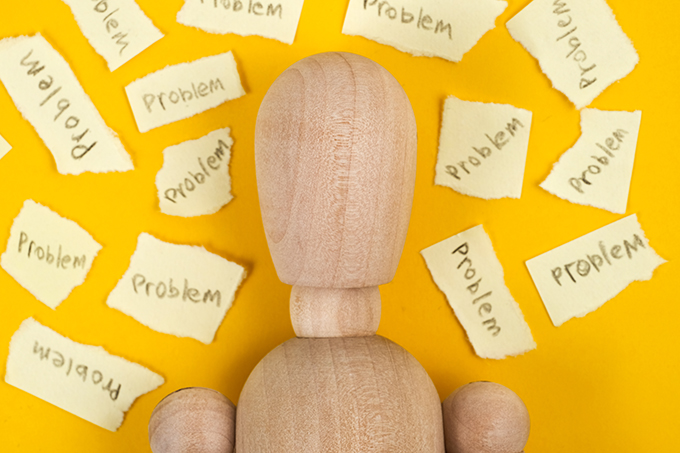Anxiety Attacks & Panic

Do you suffer from anxiety or panic attacks?
Do you frequently feel restless or worried?
Do you have trouble concentrating or sleeping?
Do you often experience dizziness or heart palpitations?
How we can help…
Anxiety is a feeling of worry or unease and is often referred to as Generalised Anxiety Disorder (GAD). GAD is a common mental health condition and ranges from mild to severe.
Everyone experiences feelings of anxiety at some point or other in life and the experience can differ from person to person. Whilst it is perfectly normal to feel anxious leading up to an exam or at a job interview or sometimes within a corporate setting, sometimes these feelings of worry and unease can be hard to control and can have a big impact on a person’s ability to function in everyday life sometimes triggering what is labelled as an anxiety attack.
It is estimated that up to 5% of the UK population is affected by GAD (NHS Choices) and can affect people across their lifespan. Although, research has shown that it appears to be more common in those aged between 35 and 59.
If you feel you need some support in managing your anxiety attacks and feelings of panic contact us and find out how we can help.
Anxiety – Adults
Anxiety occurs when our body’s threat alarm system is activated, more commonly known as our fight, flight or freeze response. Ordinarily, this response is activated when we perceive any threats or dangers within our environment. However, for some people this system is activated more frequently and in situations where there is relatively little threat. As a result it can make day to day life incredibly difficult and can often lead to feelings of low mood and depression. We have outlined some signs to look out for below which may indicate that you are struggling with anxiety.
Different people will experience anxiety in different ways but if you feel that you are struggling and would like some advice get in touch with us for an informal chat and find out how we can help.
Adult Physical Symptoms:
- You may experience a churning feeling in your stomach.
-
You may feel light headed or experience dizziness.
-
You may experience pins and needles.
-
You may feel restless or unable to sit still.
-
You may experience headaches, backache or other types of aches and pains.
-
Your breathing may become faster.
-
You may experience a fast, thumping or irregular heartbeat.
-
You may experience sweating or hot flushes.
- You may have problems sleeping at night.
- Grinding your teeth.
- You may feel nauseous.
-
You may feel tense and on edge as though you can’t relax.
- You may have panic attacks.
Adult Psychological Symptoms:
- Continuous sense of dread or you may fear that the worst will happen.
-
Feeling that you can’t stop worrying or that bad things will happen to you if you do stop worrying.
-
Worrying about anxiety itself, for example, you may worry about when a panic attack might happen.
-
Seeking lots of reassurance from other people and/or you may often worry that other people are upset or angry with you.
-
You may find yourself ruminating- thinking a lot about bad experiences or thinking about an event that happened over and over again.
-
You may experience something called depersonalisation. This is where you feel disconnected from your mind and your body, like you’re watching someone else.
-
You may experience derealisation- this is when you feel as though you are disconnected from the world around you.
-
Frequently worrying about things that might happen in the future.
Anxiety – Young People
Young Person Physical Symptoms:
- Heart beating faster.
- Shortness of breath.
- Sweating.
- Tension in muscles.
- Shakiness.
- Complaints of nausea.
- Complaints of headaches.
Young Person Psychological Symptoms:
-
Concerns about the future and ability to cope with it. These thoughts can be extreme and unrealistic.
-
Thoughts that can take the form of rumination over past events. For example, a child who experiences anxiety in social situations may continuously replay a difficult or negative interaction they have had with a peer.
-
A child may spend a lot of time focused on their worries and this can lead them to begin worrying about worrying.
Young Person Behavioural Symptoms:
-
Avoidance of situations which elicit a specific fear, for example, certain people or places.
-
A child may develop sets of behaviours which they enact to help them feel safe. For example, they may need to have a certain item with them such as a teddy bear, which helps them to feel safe.
-
Children who experience anxiety may also frequently seek out reassurances from a caregiver to help them feel safe.
Social Anxiety Disorder
Indicators of social anxiety:
- Avoiding or worrying about social activities such as group conversations or parties.
- Worrying about everyday activities such as meeting strangers, speaking on the phone, working or going shopping.
- Frequently worrying about doing something embarrassing such as blushing, sweating or appearing incompetent.
- Finding it difficult to do things when others are watching.
- Avoiding eye contact with others.
- Fear of being criticised by others or have low self-esteem.
- Sensations of feeling sick, sweating, trembling or a pounding heartbeat.
- Experiencing panic attacks.
PTSD
Panic Disorder
Indicators of Panic Attack
- Racing heartbeat
-
Feeling faint
- Sweating
- Nausea
- Chest pain
- Shortness of breath
- Trembling
- Hot flushes
- Chills
- Shaky limbs
- A choking sensation
- Dizziness
- Numbness/pins & needles
- Dry mouth
- A need to go to the toilet
- Ringing in your ears
- Feeling of dread/fear of dying
- A churning stomach
- A tingling in your fingers
